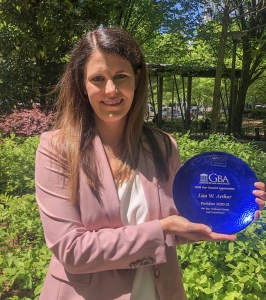
Camille Stell is President and CEO of Lawyers Mutual Consulting & Services. Continue this conversation by contacting Camille at camille@lawyersmutualnc.com or 800.662.8843.
If you are operating the fees, billing, and collections component of your practice as you did twenty years ago, chances are you are missing opportunities for work.
Clio COVID-19 Impact Report
Clio is a cloud-based legal practice management solution designed for solo and small law firms. Clio serves 150,000 customers spanning 90 countries.
As part of Clio’s ongoing research for their annual Legal Trends Report, they have undertaken new research to learn more about the impact of COVID-19 on the legal industry.
According to the 2020 Clio COVID-19 Impact Report:
- 71% of legal professionals are more concerned about their clients’ ability to pay legal fees than before the pandemic
- 25% of law firms are losing revenue due to unpaid bills than before the pandemic
- 75% of clients would prefer to pay their legal fees via payment plan, while only 53% of law firms are equipped to offer payment plans
Online Payments as a Marketing Tool
The 2019 Clio Legal Trends Report showed that 50% of consumers in need of legal services are more likely to hire a lawyer who accepts online payments. And 40% of individuals in need of legal services said they would not hire a lawyer unless they accepted credit or debit cards.
A recent study conducted by Total System Services showed that as many as 75% of customers today prefer to pay with a credit or debit card. In addition to the convenience, customers enjoy credit card rewards, cash back and other perks of using their cards.
And importantly, studies show that 85% of electronic invoices are paid the same week they are sent, and 57% are paid the same day the client receives the invoice.
You need online payment options. Taking credit cards means you get paid faster. The money is deposited in your account sooner than with a check. Integration between your credit card processor and your time and billing program and your accounting system reduces duplication of payment information. Using a credit card processor avoids the risk of client credit card numbers jotted down on sticky notes in your office.
Credit Cards and Trust Accounts
No credit card fees from the merchant should ever be taken out of the trust account. If the client disputes the charge, the merchant should not remove the funds from the trust account without notifying your firm and verifying your permission. See NC State Bar Ethics Rules RPC 247 Payment of Fees by Electronic Transfer, 97 FEO 9 Credit Card Chargebacks Against a Trust Account, 2009 FEO 4 Credit Card Account that Avoids Commingling, and 2013 Formal Ethics Opinion 13 – Disbursement Against Funds Credited to Trust Account.
When shopping for a credit card payment processor you should consider costs such as transaction fees, monthly rates, integration with your other practice management tools, and Terms of Service language.
While there are many online payment platforms available, LawPay is the Affinity Partner of the NC Bar Association. LawPay was designed specifically for attorneys. LawPay prevents commingling of earned and unearned funds, protects your trust account from third-party debiting, and ensures IOLTA compliance for credit card, debit card, and eCheck transactions.
Other legal specific credit card payment processors include ClientPay, Headnote, LexCharge, and MyCase Payments. LawPay and other credit card payment processors can also process ACH, e-payments, and e-checks.
Automated Clearing House, a U.S. financial network used for electronic payments and money transfers, often have fees that are lower than credit card processing fees.
In the NCBA’s Center for Practice Management blog, Catherine Reach has a post with a link to the ABA Solo, Small Firm Division listserv discussion on the ethics of charging processing or convenience fees to make up for the credit card processing fee, check it out. The short answer is don’t charge your client a fee to make up for the credit card processing fee.
Orion Law Management 2019 Collections Survey
The Orion Law Management 2019 Collections Survey reveals the many challenges law firms face with collection matters.
- Policy – 57% – setting a universal payment and collections policy that will apply to all clients
- Enforcement – 29% – how do you handle approaching clients about late payments once they become overdue?
- Tone – 14% – how do you contact the client to get payment but avoid offending them in the process
Best Practices
Invest the time to establish a policy and communicate it throughout the firm. Get attorney buy-in for the process you use and share success stories. If you use resources other than the attorney, make sure everyone is on the same page about the collections message. In other words, don’t have attorneys undermine collections efforts by saying, “it’s not me trying to shake you down!”
Be proactive. Stay on top of accounts receivable with monthly reports so that billing doesn’t become delinquent, and if it does, it’s not extremely overdue. Following up with the client on outstanding invoices at billing time can help clients avoid falling too far behind to catch up.
Phone calls can be impactful. This gives you a chance to connect with your client and determine if there is a problem in the process – the work, the amount billed, a personal or business issue with the client.
Asking for money is hard – but forfeiting firm revenue is harder. Be respectful, courteous, and kind. Listen. Look for options to assist your client.
Cash is King
Keep in mind, in times of crisis such as a pandemic, everything is negotiable.
For clients who have outstanding balances:
- Reach out by phone and email to inquire about the statusof payment
- Continue to send the bill to your client – their situation may change in a few months
- Send invoices in a different way – if you mailed it, send it via email as a follow up
- Offer payment deferrals
- Consider payment plans
- Consider extending a discount for remitting a balance due
- Make it easy for clients to pay you with online or electronic payment options, including credit card
Also, assess your own law firm accounts payable situation:
- Reach out to your creditors to inquire about options for payment
- Request payment deferrals
- Request a payment plan
- Ask for a discount for remitting a balance due
- Use a credit card with favorable terms or benefits to you such as cash-back options
Conclusion
Billing and collection of fees is a work in progress. As with many aspects of your business, this is an evergreen component, meaning that there is always work to be done in this area, always knowledge to collect to make sure you are on top of trends and clients are responding to your fees, billing, and collections processes.
Camille Stell is the President of Lawyers Mutual Consulting & Services. Continue this conversation by contacting Camille at camille@lawyersmutualconsulting.com or 919.677.8900.







